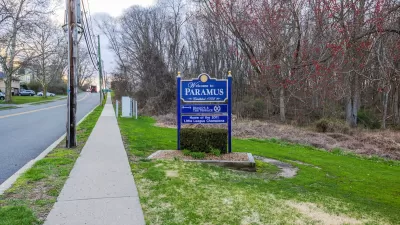Regulations that prohibit multifamily housing and smaller lot sizes contribute to a growing gulf between housing supply and demand.

According to an article by Alex Horowitz & Tushar Kansal for Pew, research shows that restrictive zoning laws are limiting new housing development in Arizona, driving up housing costs.
“Fundamentally, Arizona has too few homes available for sale or rent. The state’s population grew 14.7% from 2010 to 2022, but its housing stock increased by only 11.9%.” Homelessness in the state rose by 51.5 percent between 2017 and 2022. However, “Throughout Arizona, numerous cities and towns reserve substantial portions of residential land for the construction of the most expensive housing: single-unit detached homes, often with large lots and substantial parking requirements.” In Tucson, multifamily housing is permitted on just 12 percent of land.
Larger homes and lots also prompt higher usage of water, an increasingly scarce resource in Arizona and the Southwest. “A nationwide study that included data from Phoenix Water Services found that single-family homes in Phoenix used an average of 331 gallons per day, whereas each home in a multifamily development used 182 gallons per day (45% less).”
FULL STORY: Restrictive Zoning Is Raising Housing Costs and Homelessness in Arizona

Maui's Vacation Rental Debate Turns Ugly
Verbal attacks, misinformation campaigns and fistfights plague a high-stakes debate to convert thousands of vacation rentals into long-term housing.

Planetizen Federal Action Tracker
A weekly monitor of how Trump’s orders and actions are impacting planners and planning in America.

In Urban Planning, AI Prompting Could be the New Design Thinking
Creativity has long been key to great urban design. What if we see AI as our new creative partner?

King County Supportive Housing Program Offers Hope for Unhoused Residents
The county is taking a ‘Housing First’ approach that prioritizes getting people into housing, then offering wraparound supportive services.

Researchers Use AI to Get Clearer Picture of US Housing
Analysts are using artificial intelligence to supercharge their research by allowing them to comb through data faster. Though these AI tools can be error prone, they save time and housing researchers are optimistic about the future.

Making Shared Micromobility More Inclusive
Cities and shared mobility system operators can do more to include people with disabilities in planning and operations, per a new report.
Urban Design for Planners 1: Software Tools
This six-course series explores essential urban design concepts using open source software and equips planners with the tools they need to participate fully in the urban design process.
Planning for Universal Design
Learn the tools for implementing Universal Design in planning regulations.
planning NEXT
Appalachian Highlands Housing Partners
Mpact (founded as Rail~Volution)
City of Camden Redevelopment Agency
City of Astoria
City of Portland
City of Laramie





























